
28 Sep, 2017
Thailand first to make UN SDGs a criteria for National Tourism Awards
Bangkok – The Tourism Authority of Thailand raised its bi-annual industry awards to a new level this year by including the principles of the national Sufficiency Economy and the global UN Sustainable Development Goals as core components of the judging criteria.
It is arguably the first time any country has made the UN SDGs a judging criteria for the national tourism awards, and the first Thai economic sector to link the SDGs and the Sufficiency Economy philosophy of His Majesty the late King Bhumibhol Adulyadej. The extensive publicity being generated by the awards in Thailand is expected to accelerate the ongoing rebalancing from marketing to management, boost awareness of the SDGs industry-wide and meet the goals of the Thailand 4.0 national development plans.
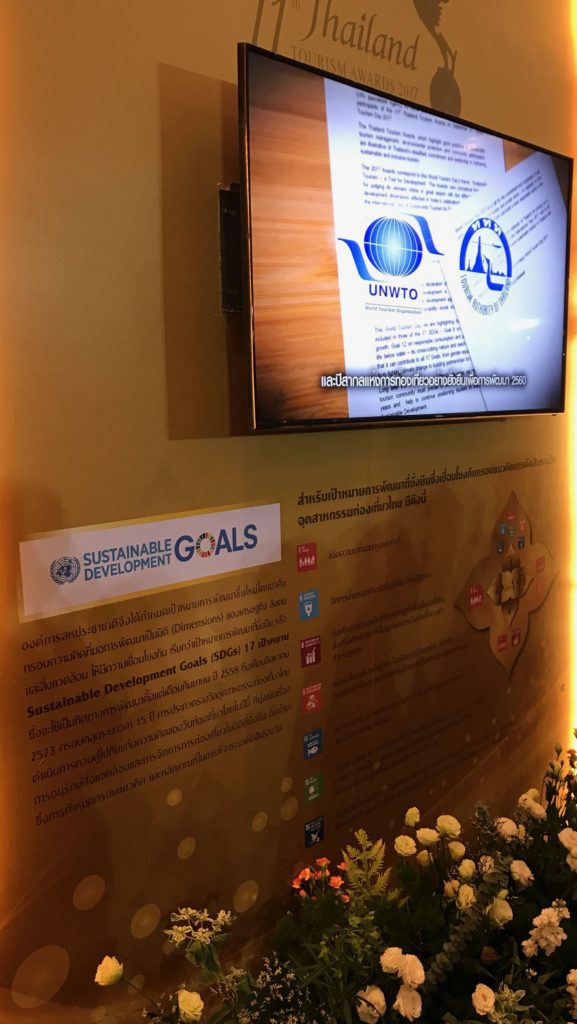 |
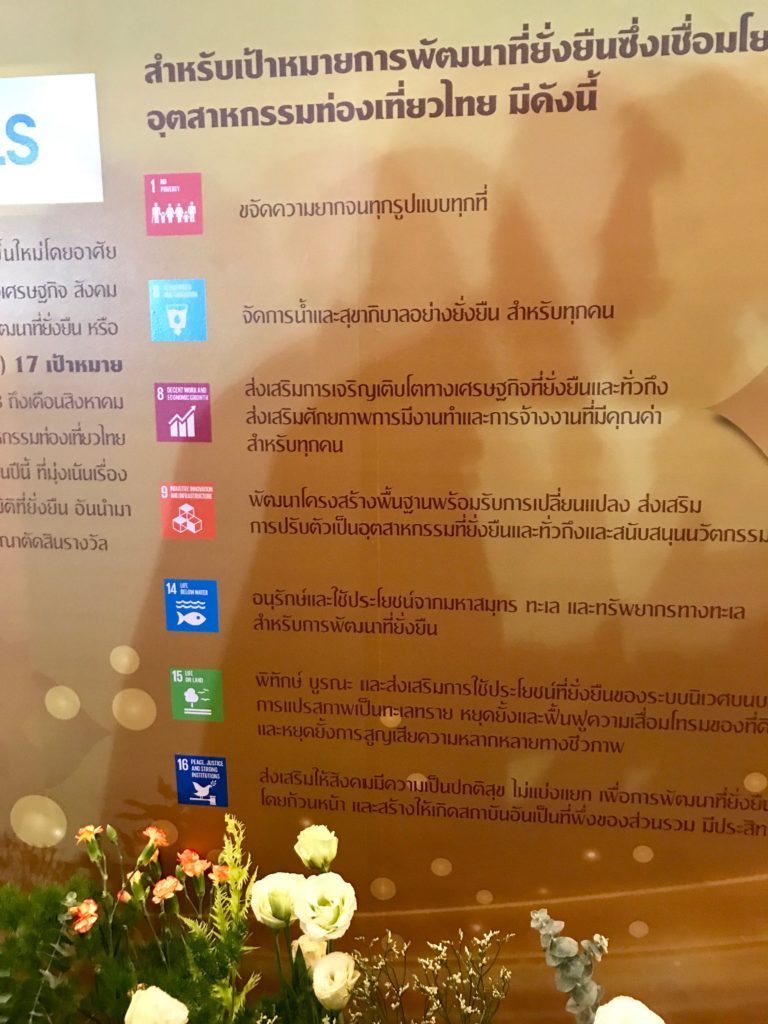
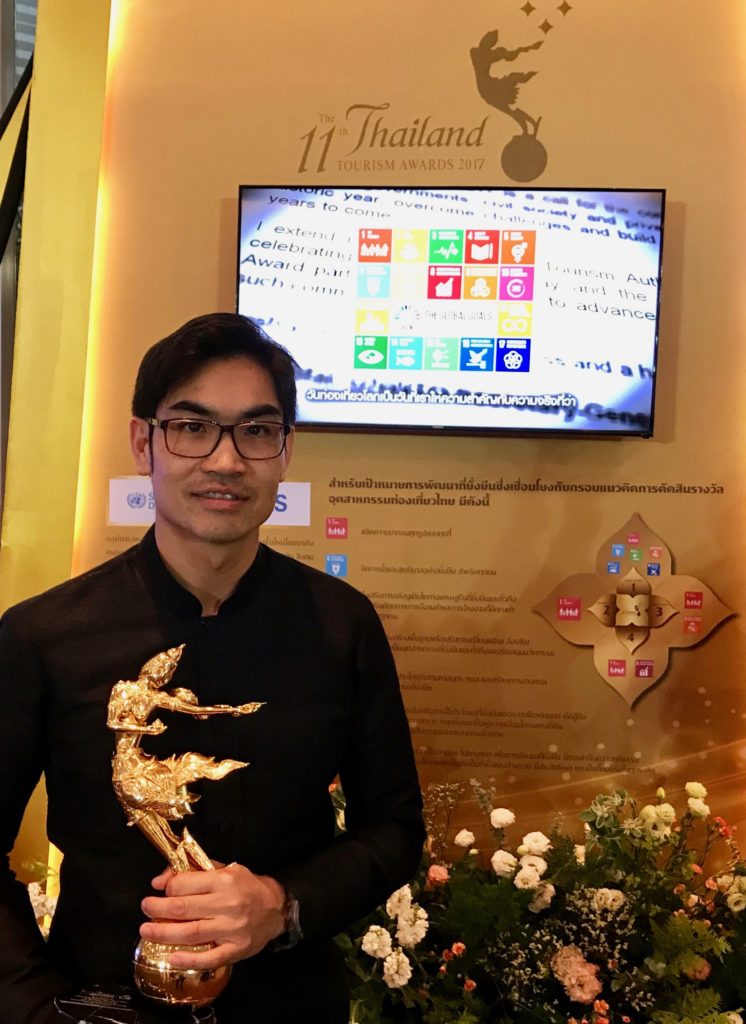 Mr Arrut Navaraj, Managing Director of double-award winner Sampran Riverside, in front the video monitor displaying the UN SDG emblems. The other pictures show the panels with the Thai rendition of the UN SDGs. |
The awards also will have a regional and global ripple-effect by motivating other countries to similarly broaden and upgrade their own tourism awards. Private companies which give travel awards, especially conference organisers and publications, will also need to take notice.
The management and sustainability focus of the Thai tourism awards comes exactly 30 years after Thailand set new global benchmarks for tourism marketing with the Visit Thailand Year 1987 extravaganza, which celebrated the auspicious 5th cycle 60th birthday of King Bhumibhol. Since then, Thai tourism has spent many hundreds of billions of baht on marketing, marketing and more marketing.
However, with 35 million visitors projected this year, of which 10 million will come from China alone, there is widespread recognition that the quantitative crush generated by the success of the marketing campaigns could lead to a qualitative deterioration of the product, unless it can be counter-balanced with a management emphasis.

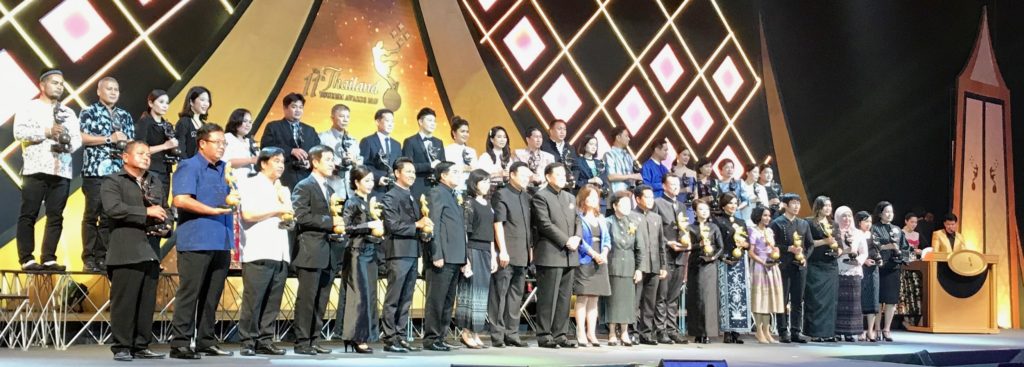
The full line-ups of award winners.
Specially conferred on 27 September 2017, World Tourism Day, the sustainability theme of the Thai tourism awards was in line with the International Year of Sustainable Tourism for Development declared by the UN.
Seven of the 17 SDGs included in the judging criteria were prominently featured in the awards’ opening presentation, cited in the awards publication and displayed in well-positioned panels in the foyer outside. All were translated into Thai to promote a better trickle-down understanding of their importance.
The organising and judging committees comprised entirely of Thais. They included a cross-section of representatives from outside the tourism industry. Each awards category had different judging committees comprising of diverse representatives such as academics, architects and health officials. The award for tourist attractions included judges from government agencies responsible for the environment, agriculture, fine arts and national parks.
The 110 award-winners included a broad range of small and medium sized enterprises, public sector and community-based organisations, all of which are creating jobs, generating income and contributing to the upkeep of local cultures, heritage, arts and traditions. They included organic farms, museums and even one military academy. Only three brand-name properties were on the list: the Centara, Dusit and Banyan Tree.
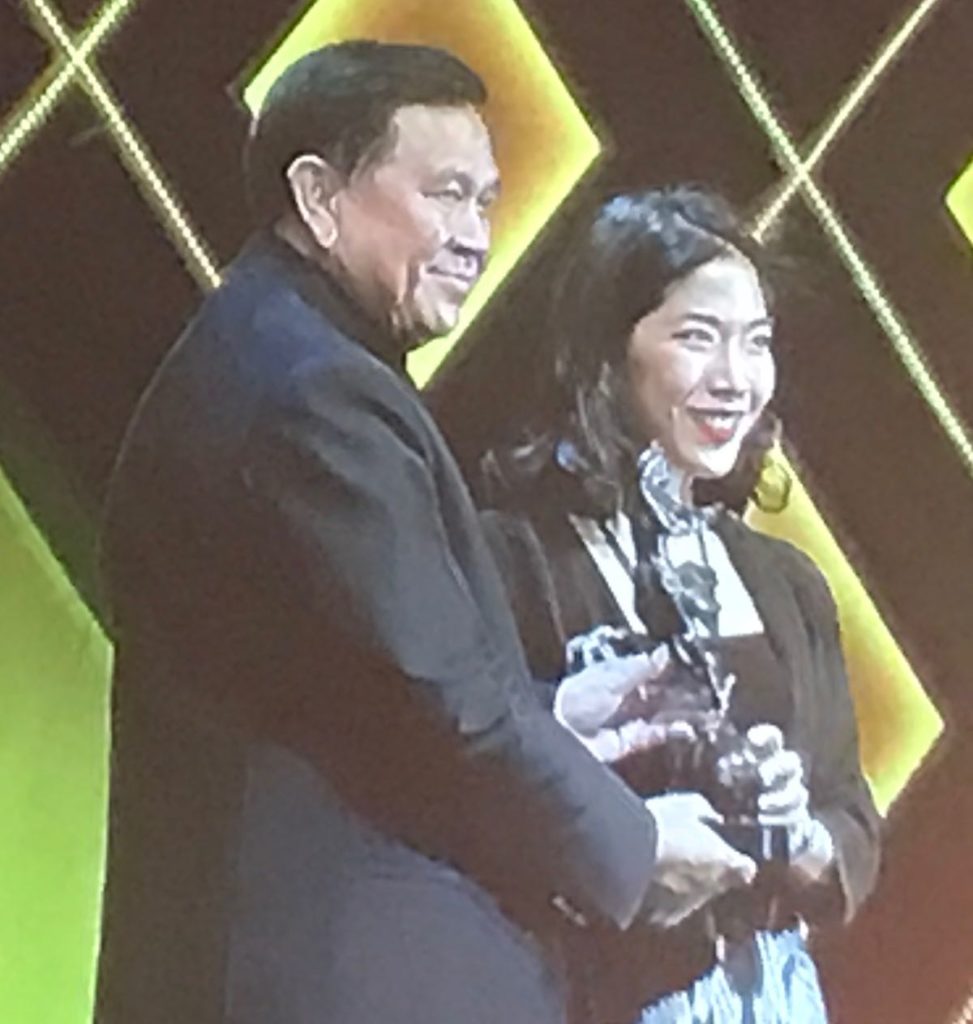 |
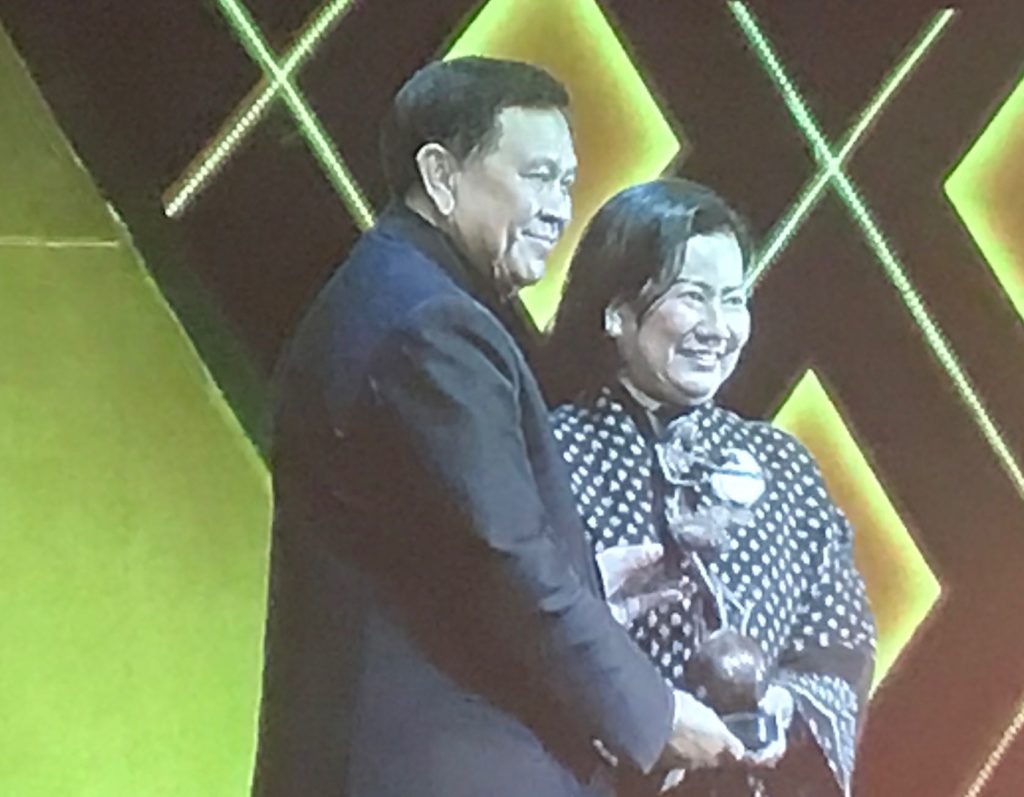 |
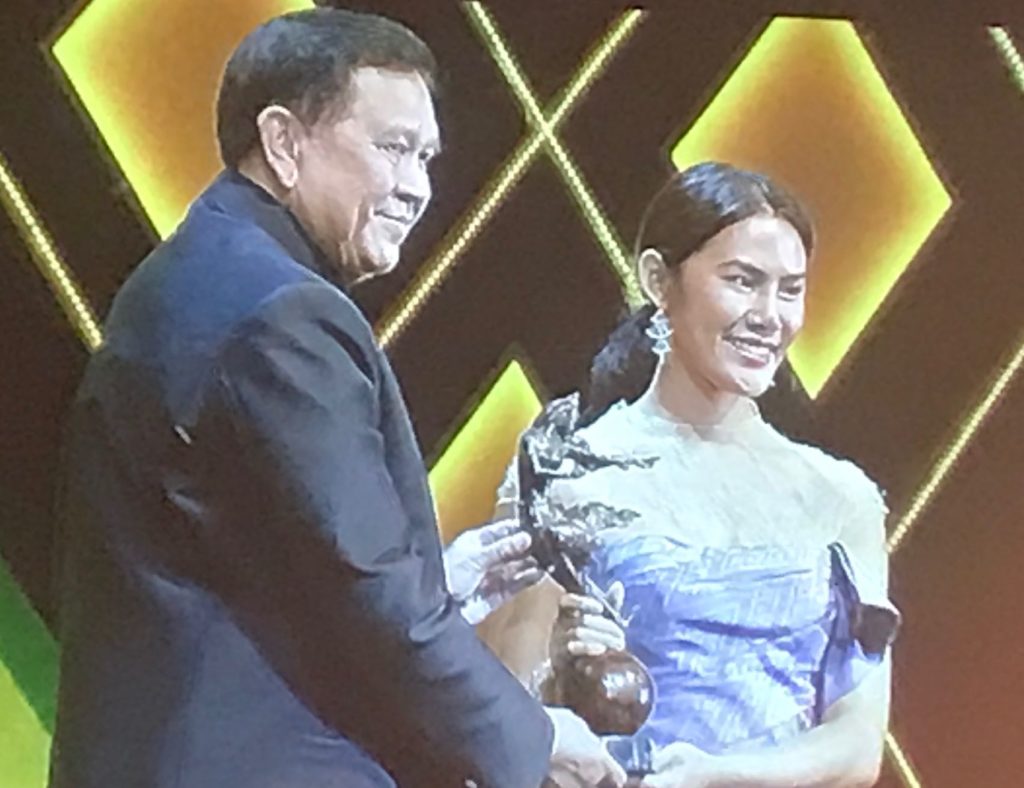 |
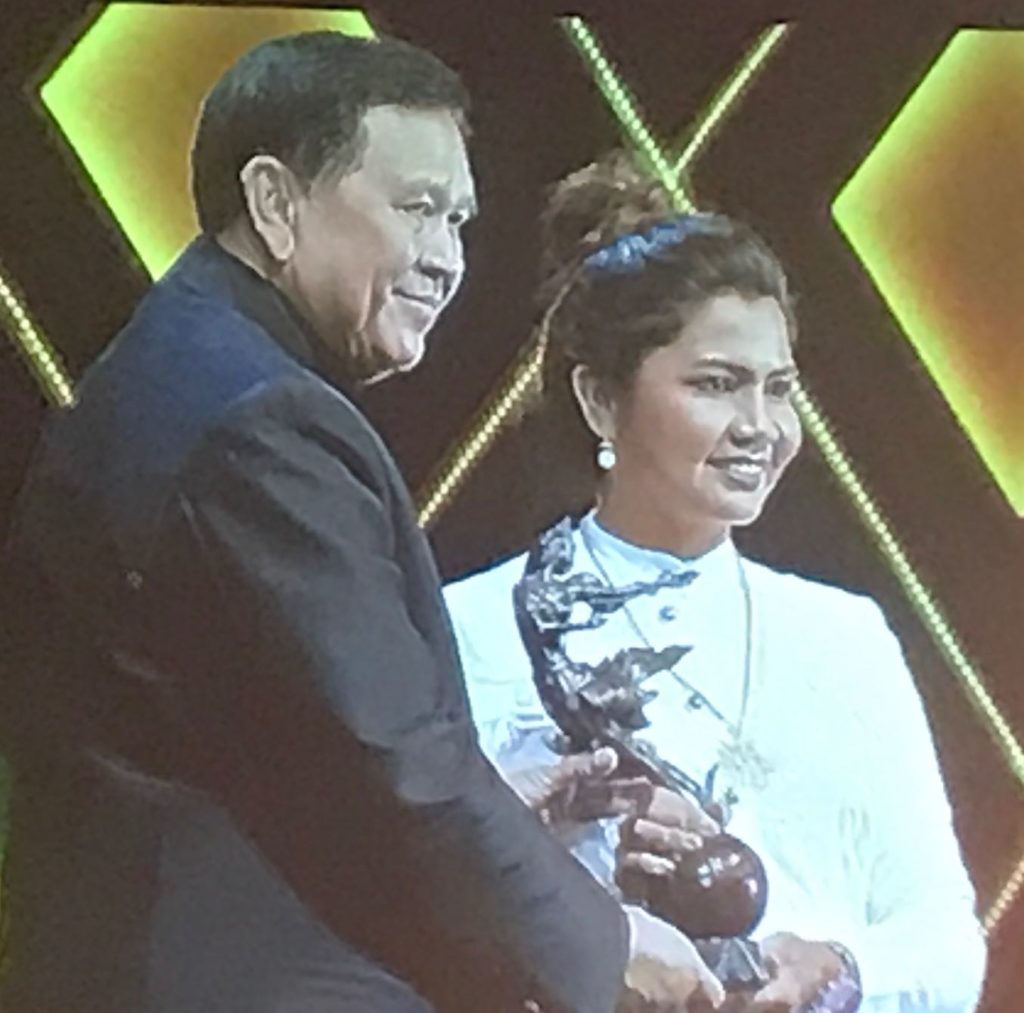 |
| Many of the award winners were women owned- and -operated companies. | |||
The awardees were almost all located in the rural provincial and districts. In future, the extensive publicity given to the awards through the Thai government communication channels will increase awareness among the district offices about the importance of tourism and get them more closely involved in the management process.
As tourism has now become an economic mainstay and powerful force for national development across all fronts, both the TAT and the Ministry of Tourism and Sports are going out of their way to motivate local government officials to better enforce the rules, regulations and laws vital for product upkeep and customer satisfaction.
In line with the objective of building inclusive societies and ASEAN socio-cultural integration, a number of the award-winners were companies and community-based tourism projects owned and operated by Thai Muslims in both Southern and Eastern Thailand. About 10% of the Thai population is Muslim.
 |
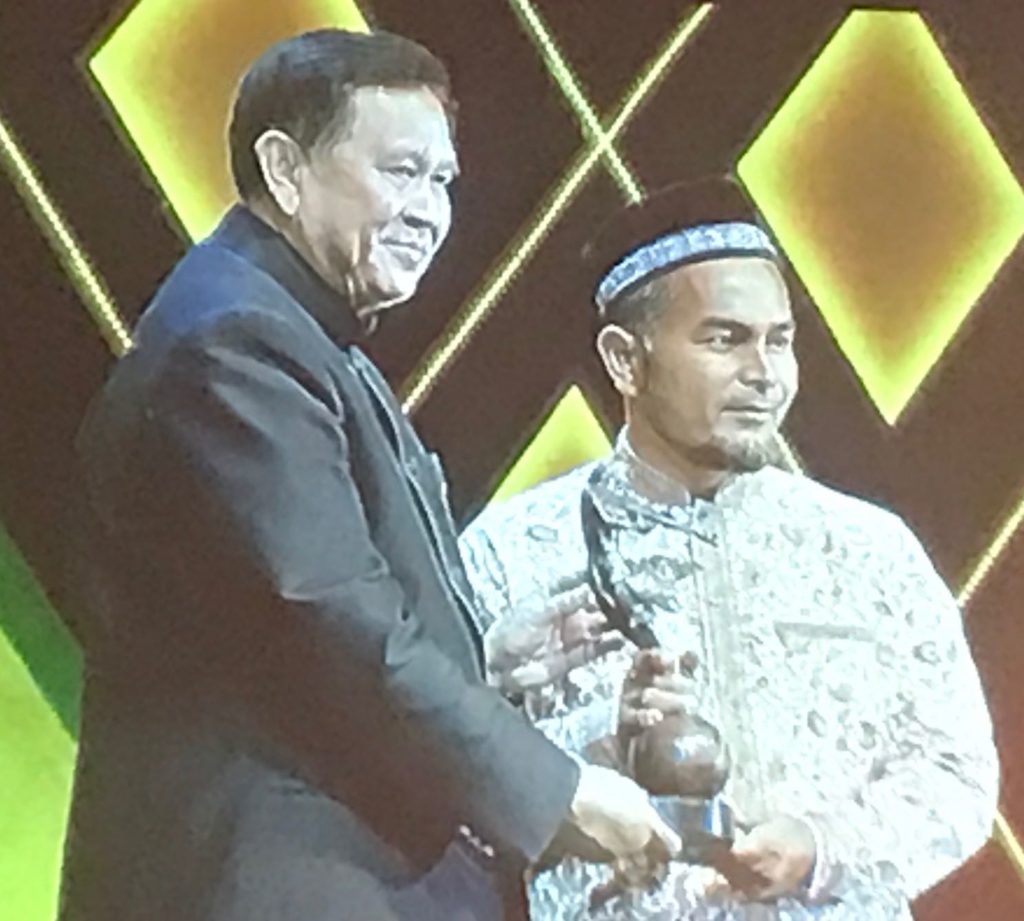 |
| Muslim-owned and -operated enterprises among the winners. | |
In his opening remarks, Deputy Prime Minister General Tanasak Patimapragorn noted that although tourism was now an economic bedrock, it did not require much infrastructure investment. The real “infrastructure” was the Thai friendliness, hospitality and service standards and the “investment” required was primarily ways to maintain it.
In his message printed in the awards publication, UNWTO Secretary General Dr Taleb Rifai said: “Long after the International Year (of Sustainable Tourism for Development) 2017, the gains we are making as a global tourism community must prevail in the sector’s development in the coming years and help to continue positioning tourism in the 2030 agenda for sustainable development. World Tourism Day 2017 is a call for the commitment and cooperation of all parties — governments, civil society and private sector — to capitalise on this historic year, overcome challenges and build a more responsible sector in the years to come.”
Minister of Tourism and Sports Mrs Kobkarn Wattanavrangkul said, “The Royal Thai government through the Ministry of Tourism and Sports has a policy that emphasises that integration with all sectors to promote tourism to progress and have sustainability in accordance with the Thailand 4.0 strategy. This has been conducted by maintaining the identity, value of the local wisdom, and tourist attractions, which include nature, culture and historical sites as well as creating incentives and facilities that assist in providing a touristic atmosphere.”
TAT Governor Mr Yuthasak Supasorn said, “Today, tourism management is a key for disseminating income to the provinces, as well as act as a guide on modern marketing management to encourage investors to invest and influence tourism interpreters to always continue to develop quality products and services for the benefit of consumers and tourists. This is the direction to increase the value of tourism products and services to be competitive in the international stage under the Thailand 4.0 strategy.”
The governor added, “Throughout the years, the key income earner for the industry has been the natural assets and retained strengths of the customs and traditions are the identity of Thainess. Furthermore, the service culture has always received acceptance and satisfaction from tourists. Therefore, the key goal in the selection of high-quality products and services for the market is the contextual adjustment of tourism to be in line with the Sustainable Development Goals. These take into account the social and environmental dimensions as a major mechanism, which is in line with the direction of the tourism promotions of the nation that pushes quality tourism products forward to the world.”
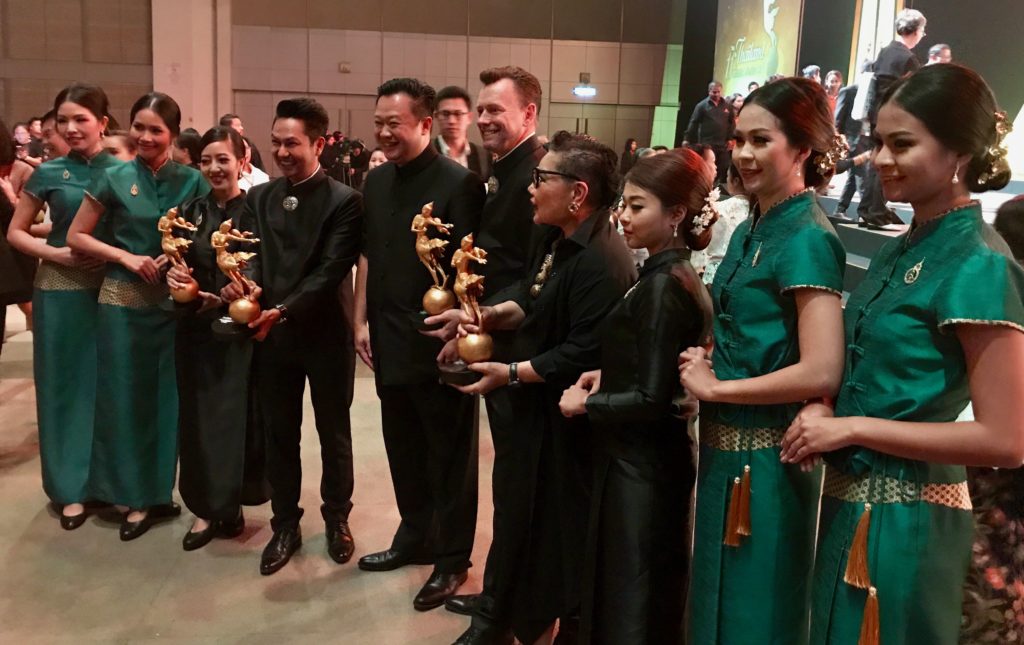
The award-winning team at one of the spas.
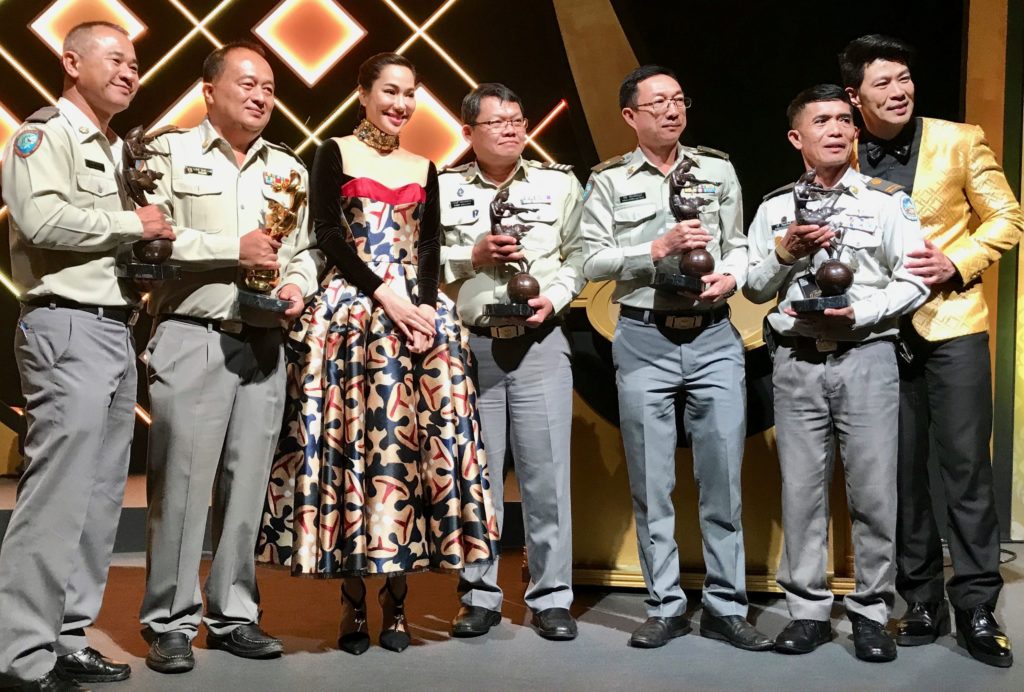
Representatives of some of the government agency award winners.
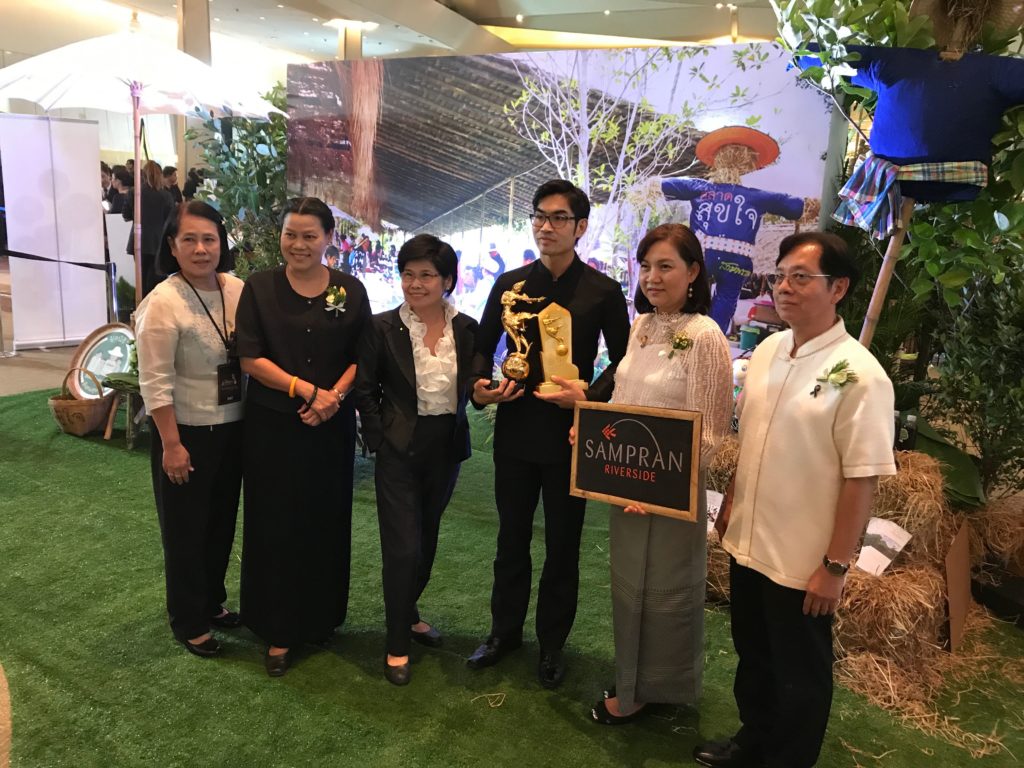
The team at Sampran Riverside.
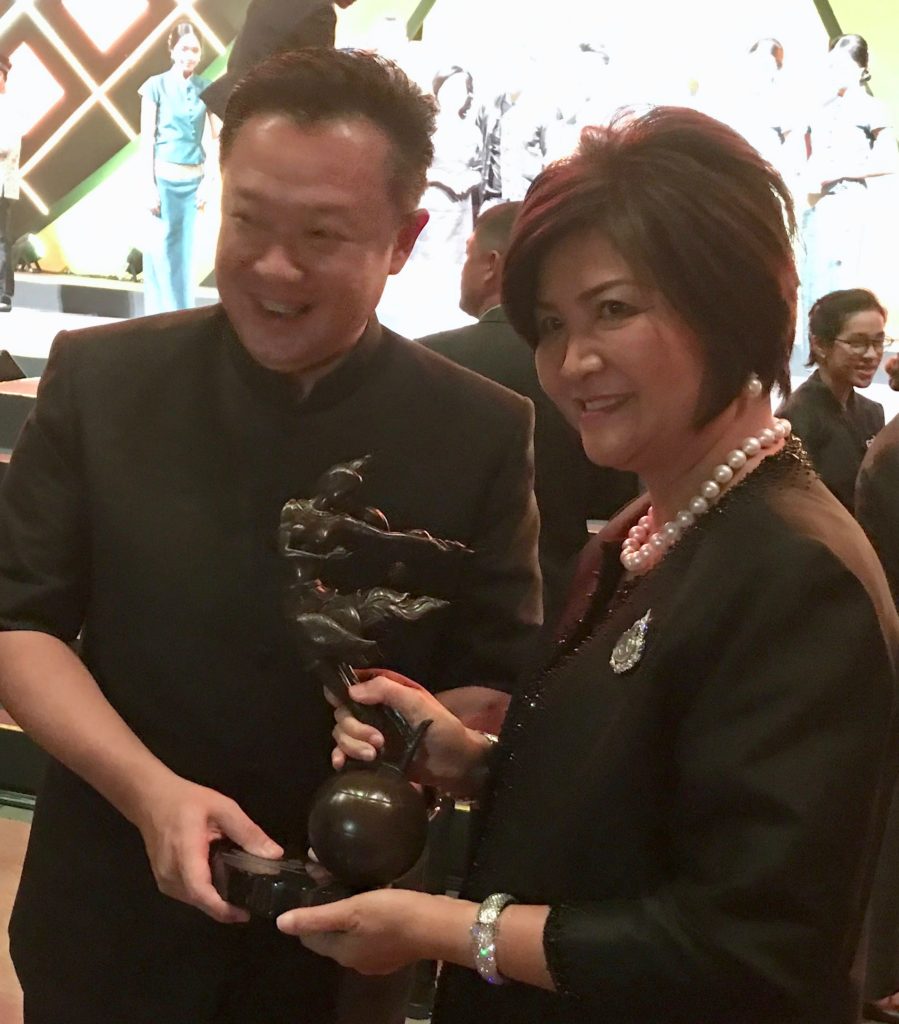
TAT Governor Yuthasak with one of the awardees.
The awards will now go a long way towards inculcating a greater sense of sustainability across Thai travel and tourism. A major aim is to drive business to the award-winners by recognising and rewarding their commitment to high standards and quality.
The only drawback of the event was the low quality of the awards publication, which was out of sync with both the quality of the awards as well as the superlative standards of other TAT communications material.
The atrocious English-language translation demeaned the importance of the core objectives and messages. It contained numerous spelling mistakes and factual errors. In one place, it said the TAT held the first Thailand Tourism Awards in 1994. On the very next page, it said the awards were introduced for the first time in 1996.
That is a shame, as a major objective of the awards is to help generate positive global publicity for both the industry and the individual award-winners. As Thailand is seeking “quality” tourists, and trying to improve the “quality” of its products and services, a better quality awards publication would have been more in tune with those objectives.
Here are some photographs of the event.



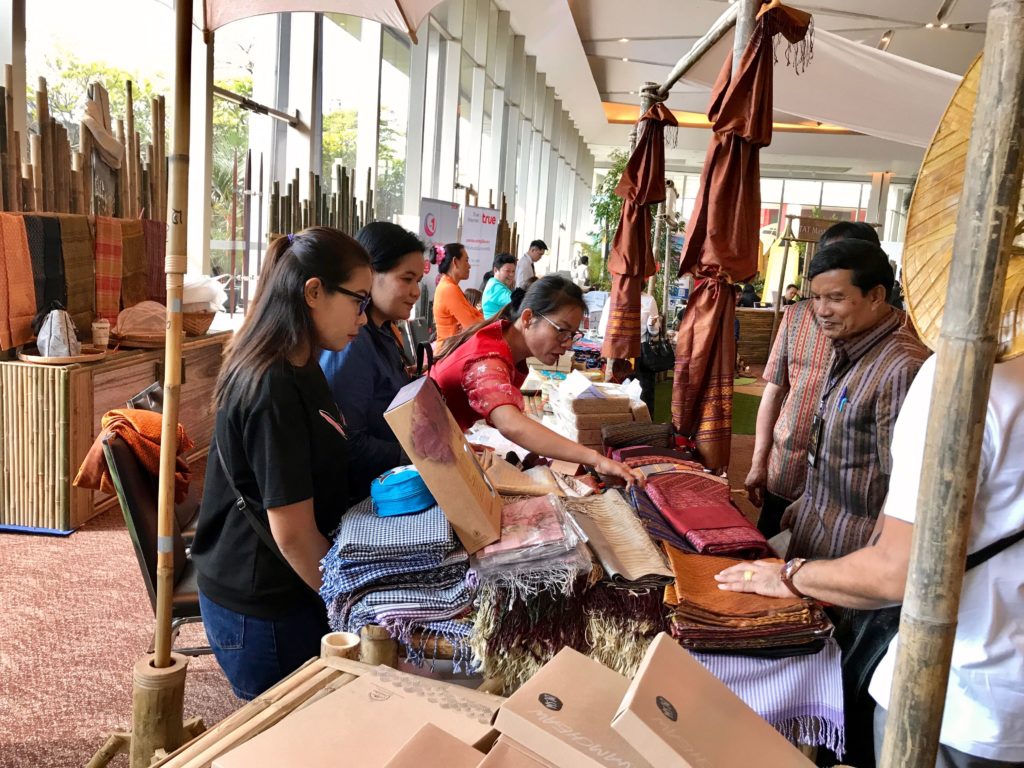
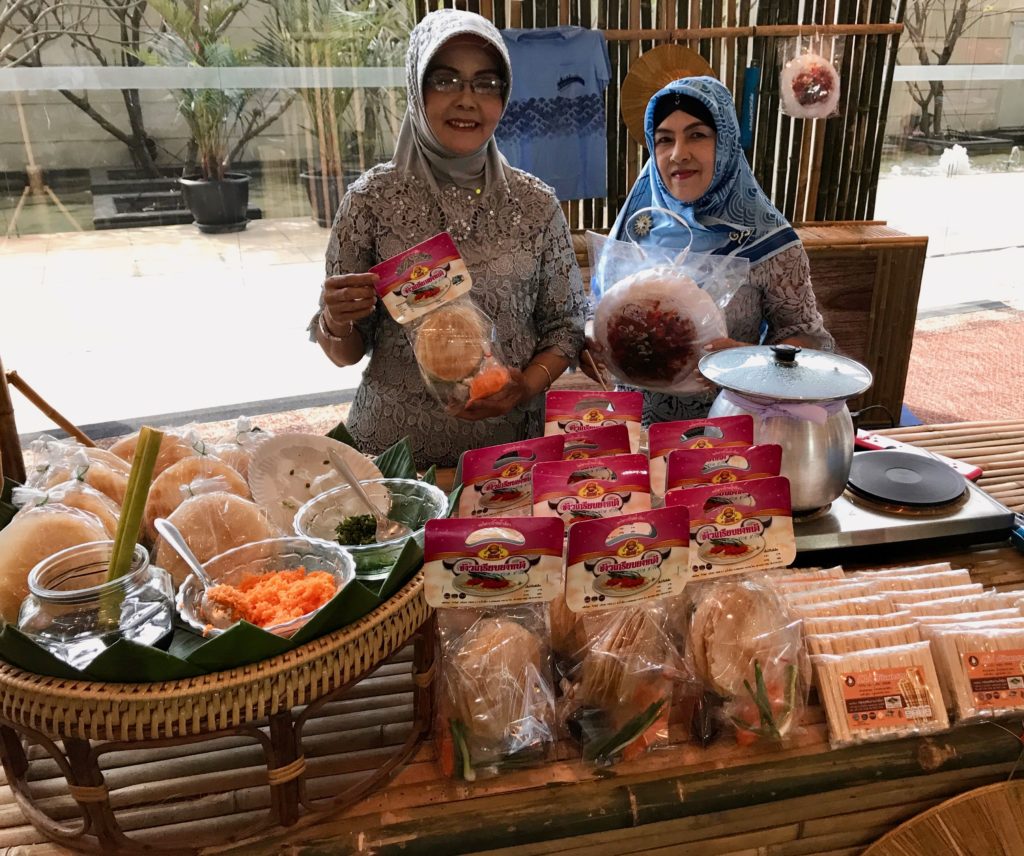
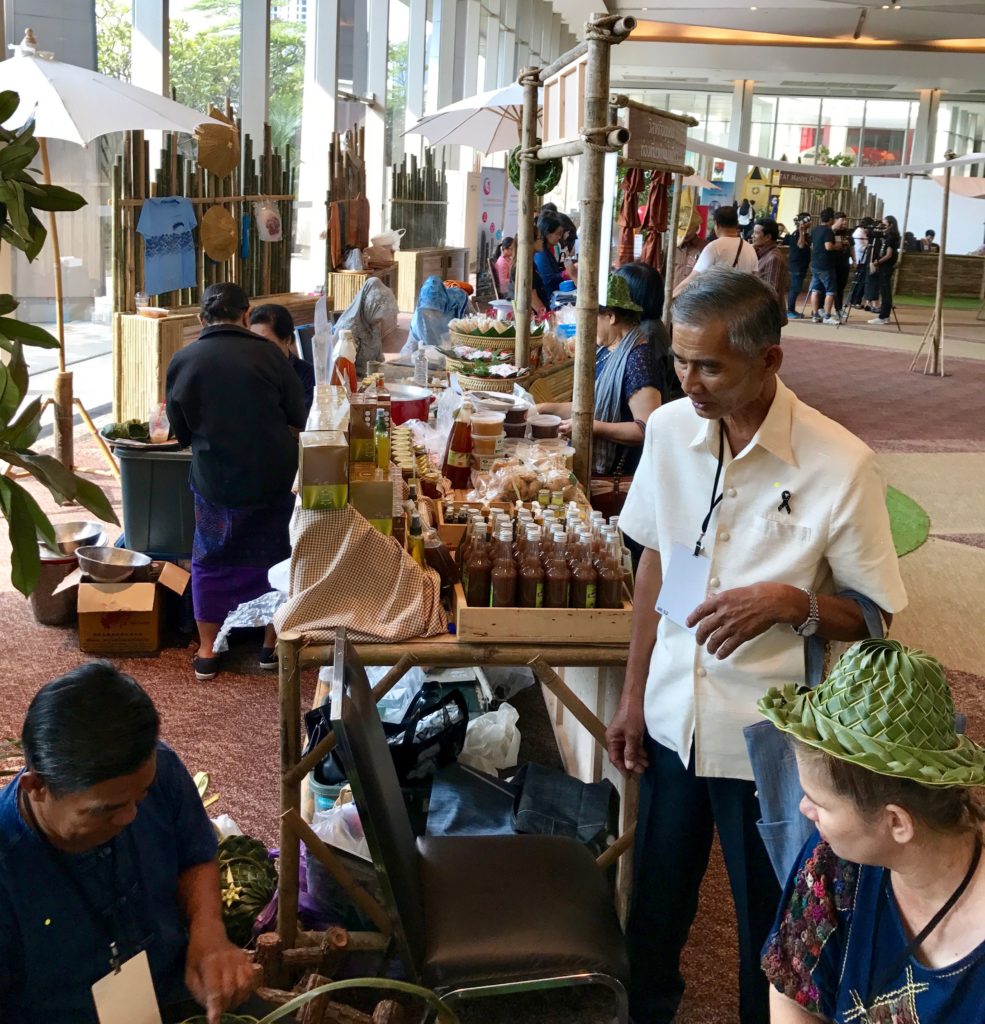
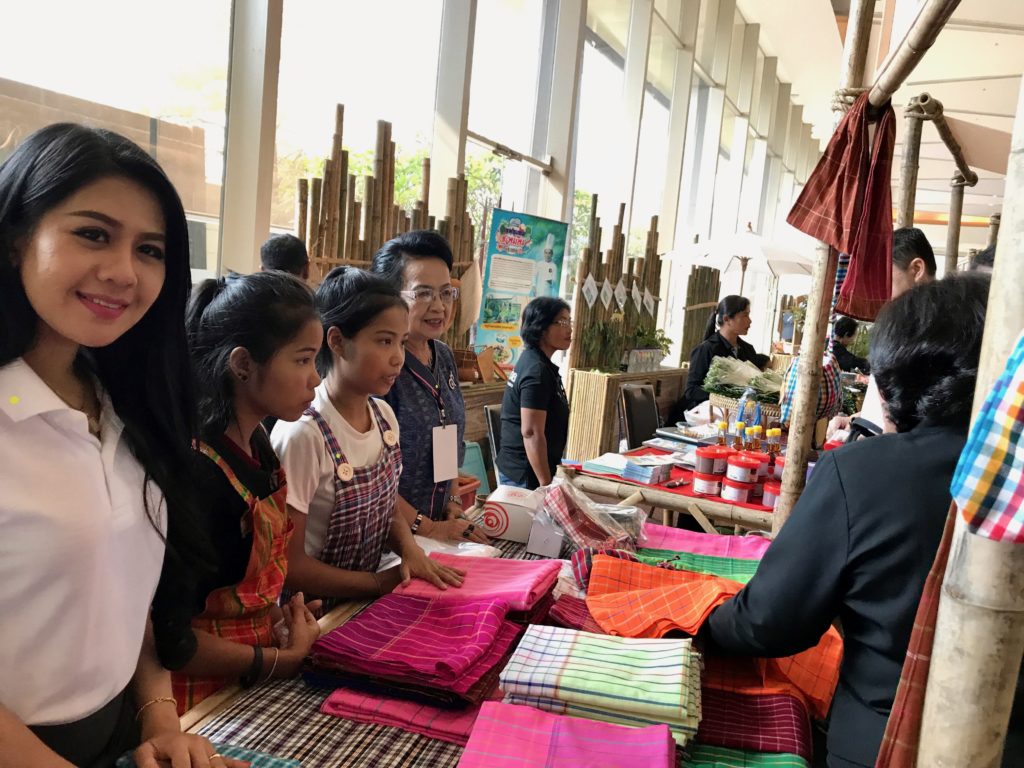
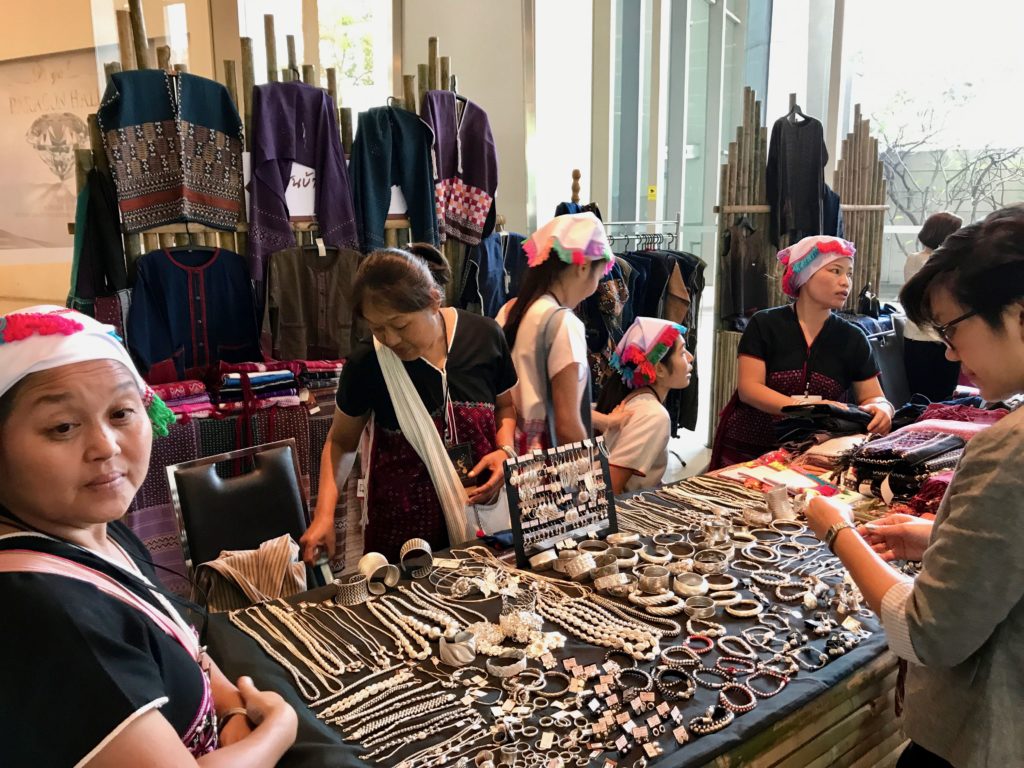
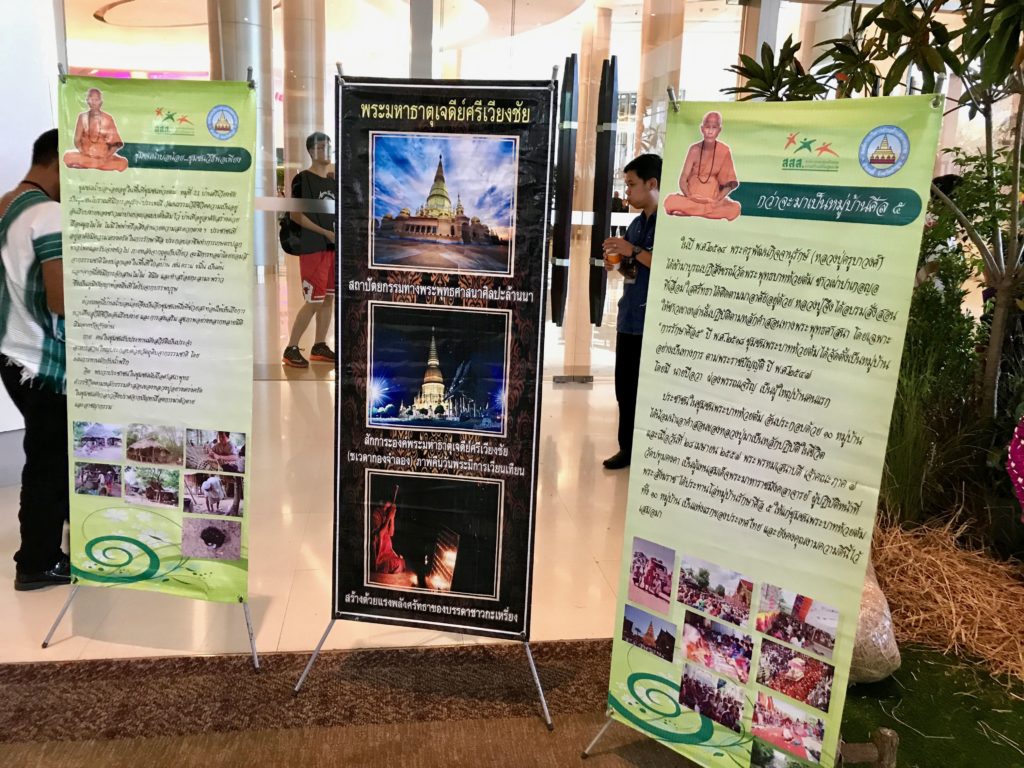
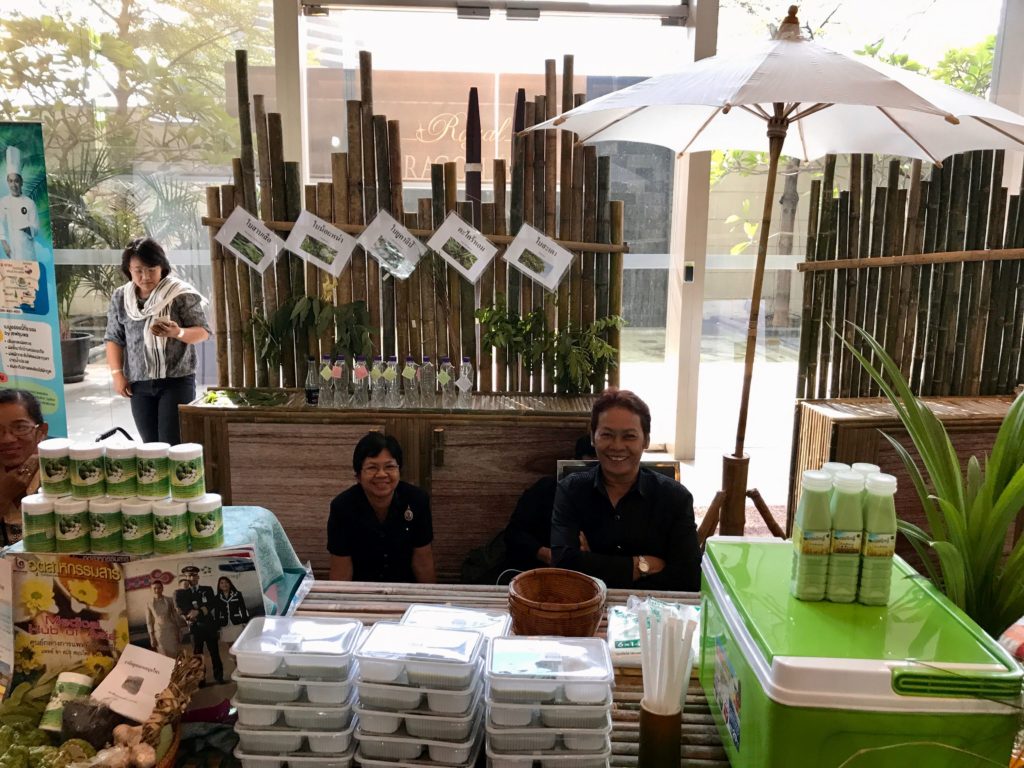
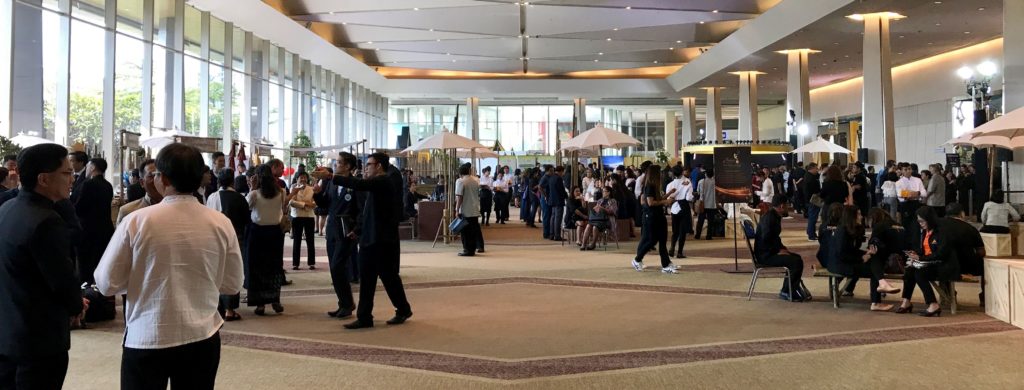

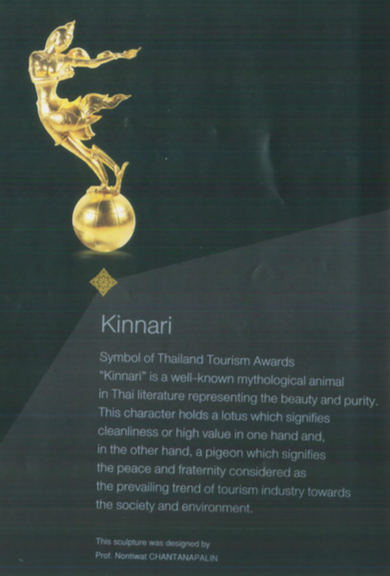


Liked this article? Share it!